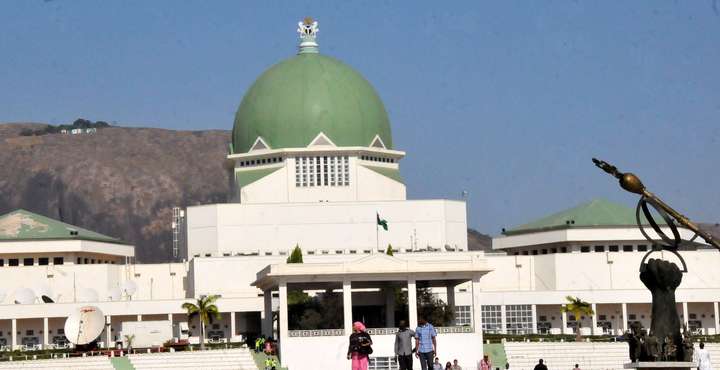Constitution Amendment: Regional Govt Tops 56 Memoranda To NASS
Nigerians are calling for a return to the regional system of government, also known as the parliamentary system.
This demand emerged during the National Assembly’s consideration of memoranda submitted by the public as part of the ongoing constitutional amendment process.
Among the 56 memoranda received, prominent issues include regional government, unicameral legislature, local government autonomy, state police, gender equality bills, and the inclusion of traditional rulers in the constitution.
In total, 474 clauses have been submitted for consideration, according to the Senate Committee on Constitutional Amendment.
A majority of the proponents advocating regional government come from southern Nigeria.
This call gained momentum following the release of a draft document by Dr. Akin Fapohunda titled, “A Bill for an Act to Substitute the Annexure to Decree 24 of 1999 with a New Governance Model for the Federal Republic of Nigeria.”
The proposed bill suggests a new governance model, which would be codified as “The Constitution of the Federal Republic of Nigeria: New Governance Model for Nigeria Act 2024.”
One of the memoranda, submitted by the Kwara South Consultative Forum, supports the reintroduction of regional government.
It reads, “We demand the reintroduction of the regional constitution as it was before 1988 and propose the reversal of the bicameral legislature to a regional Assembly.”
Similarly, in its submission, the All Middle Belt Youth Forum advocated a return to the parliamentary system and recommended discarding the current geopolitical zones.
It proposed the adoption of the 2014 National CONFAB report, which suggests the creation of new zones, including North-West, North-East, Middle Belt East, Middle Belt West, South-West, Mid-West, South-East, and South-South.
The EGI Professors and Academic Doctors Forum also backed the call to revert to a parliamentary system.
In their memorandum, they stated: “We fully support power devolution from the centre to the community level. The current federal structure is too centralised, and resources are often misallocated.”
The Okun Development Association echoed these sentiments, recommending the restructuring of the central government and the current six geopolitical zones into federating units, operating as regions with their own constitutions.
The association canvassed that :“Each region should control its economy and government, contributing to the running of the federation.”
Likewise, the Ijaw National Congress and Bayelsa State Elders Council supported the call for regionalism. Their submission advocates the establishment of 10 regions, including the Northwestern, Upper Northern, North Central, North East, Middle Belt, Western, Mid-Western, Niger Delta, Eastern, and Eastern Delta Regions.
Their proposed amendments suggest that each region should have the authority to create lower tiers of government and control its resources, with regions paying taxes to the federal government.
In contrast, the Southern Kaduna People’s Union called for Nigeria to remain a federation but recommended the creation of eight geopolitical zones, including Middle Belt West and East.
During a recent constitution amendment retreat organised by the committee in Kano State, lawmakers expressed varying opinions on the push for regional government, highlighting the ongoing debate about the future of Nigeria’s governance structure.
The Senate Leader, Opeyemi Bamidele, emphasised that such a major shift in governance would require extensive consultation and political consensus.
He explained, “There are some decisions that the executive cannot simply draft and send as a bill to the National Assembly. Moving towards a regional form of government is not something that can be accomplished by a single bill, whether sponsored by a parliament member or the executive.
“This isn’t a matter to be decided through a public hearing alone.”
He added, “Whether or not to return to regional governance is a topic for debate, but it’s not something that can be resolved through legislative action without a broader consensus.”
Similarly, former Deputy Senate Leader and Bauchi Central lawmaker, Senator Abdul Ningi, expressed strong opposition to a return to regional government.
He remarked, “My senatorial district will be satisfied independently within Nigeria if that’s what it takes. I’ve heard many advocate for regional government or federalism, but the current constitution remains the supreme law of the land. Only members of the National Assembly are mandated to amend it.”
Ningi questioned the legitimacy of individuals or groups who claim to represent ethnic interests without a clear mandate, saying, “At what point were they authorised to represent these ethnic groups?
“The National Assembly is the only body given the mandate to review and amend the constitution.”
Ningi also criticised the regional government structure of the past, particularly how it functioned in northern Nigeria.
“My constituency did not benefit from the regional government system of the First Republic, which was based in Kaduna. We are not going back there.
“As far as regional government is concerned, my constituency, my people aren’t for it.
“For us, it’s the Nigerian federation or nothing. What we need is reform, including fiscal federalism, but not a return to regionalism.”
Senator Muntari Dandutse, representing Katsina South, echoed the same sentiments, stating that Nigeria’s focus should be on good governance, not regionalism.
He added, “Every region in this country is blessed with natural resources, but the problem has always been management.
“What we need is responsible leadership and fair access to resources. Nigeria has immense potential, but without serious and determined governance, we won’t move forward.”
On the other hand, Senator Fatai Buhari, representing Oyo North, supported the idea of regional government. He argued that regionalism allowed for better resource management and accountability in the past.





